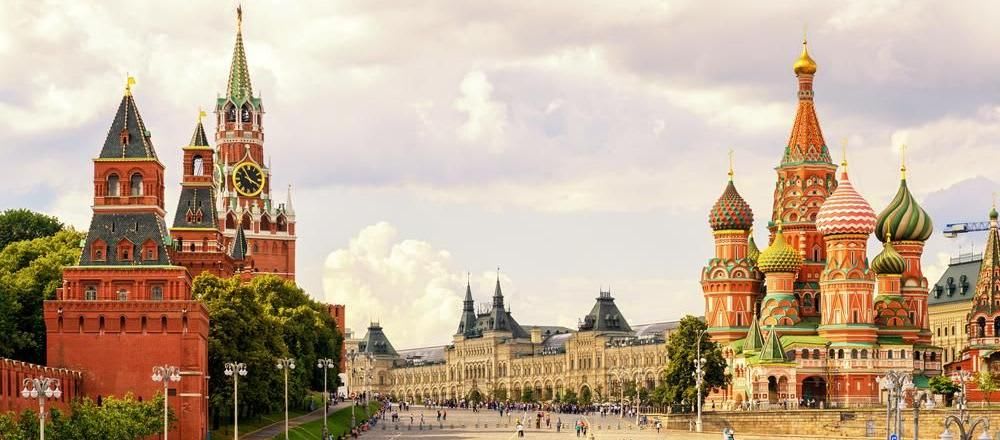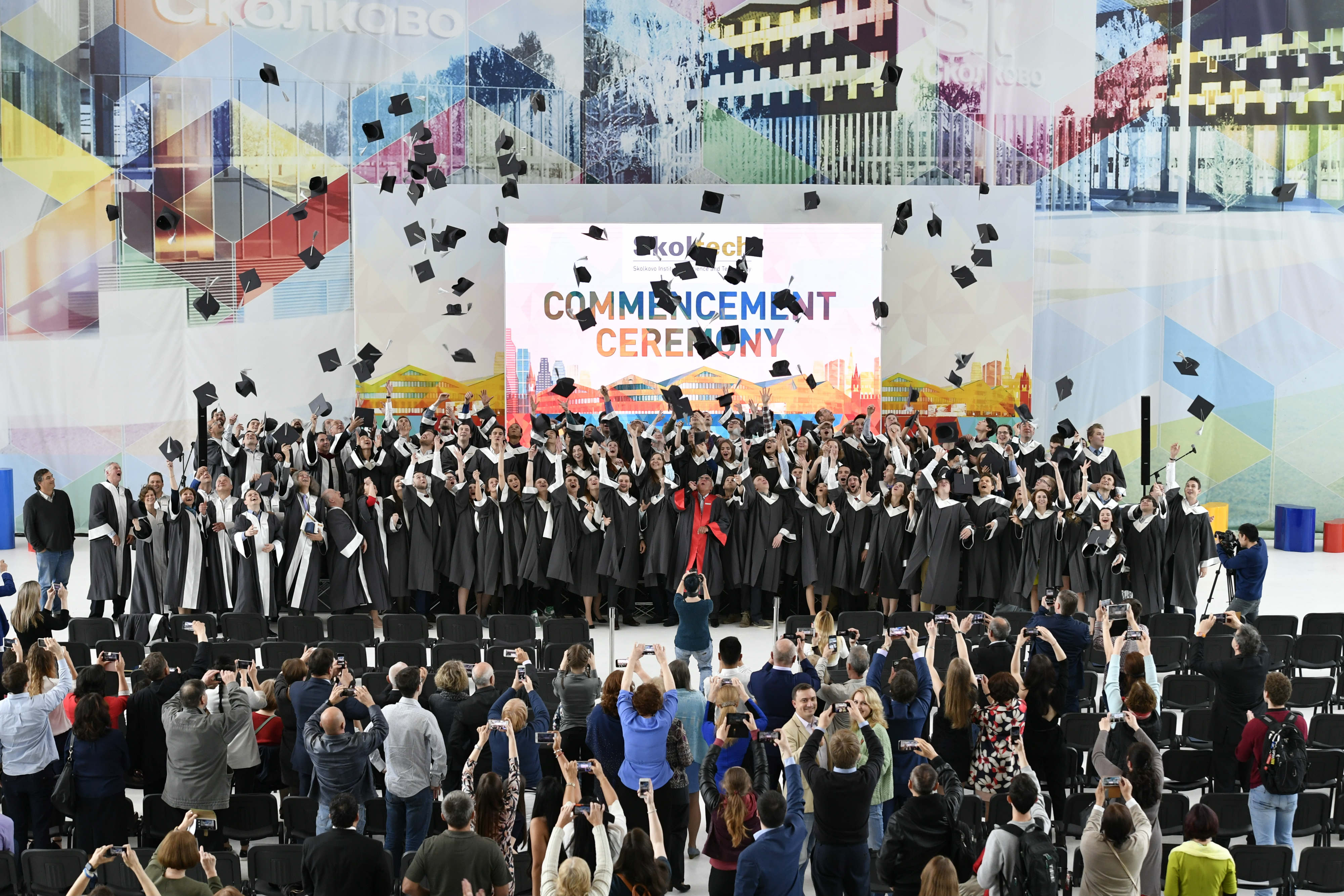Make Your Research Global – Study in Russia!
Russia has long been a bastion of scientific knowledge. Factor in the growth potential of its economy and the country’s increasing prioritization of technological innovation, and the massive country is positioned to become a powerhouse on the global research stage. Read more about international studies in Russia and one international university that is leading the way.
- Education
- Student Tips

Russia has long been a bastion of scientific knowledge. Factor in the growth potential of its economy and the country’s increasing prioritization of technological innovation, and the massive country is positioned to become a powerhouse on the global research stage. One institution leading the way? The Skolkovo Institute of Science and Technology (Skoltech). Here’s a closer look at how this international university is helping to advance scientific knowledge and foster innovation toward solutions for some of the world’s greatest challenges.
Where Innovation is the Imperative
A modern university with a research and education campus located on the outskirts of Moscow, Skoltech was established in 2011 in collaboration with MIT. It comprises 10 MSc and 7 PhD programs oriented at six target domains: Life Sciences and Biomedicine, Data Science and Artificial Intelligence, Cutting-edge Engineering and Advanced Materials, Energy Efficiency, Quantum Technologies and Advanced Studies.
What makes Skoltech unique in terms of the innovation imperative? For starters, its international research and education models fuse Russia’s esteemed scientific legacy with 21st-century entrepreneurship and innovation.
Says Keith Stevenson, Director of the Skoltech Center for Electrochemical Energy Storage (CEE) and the Skoltech Center for Energy Systems, of how innovation is interwoven throughout the school and its programs, “Most other universities are still in a traditional structure that compartmentalizes education and research components. In the new paradigm, it is much easier to modernize the education and training of students. Each course not only involves lectures, but also application periods where students can apply what they have learned in real-lab based research settings with modern equipment. In the end, students graduating from this program are more geared to work in emerging technology savvy fields and to apply their training in solving big problems.”
Echoes Space and Engineering Systems student Shreya Santra of the Skoltech education and research paradigm, “I like how the Skoltech curriculum allows us to do practical applications of what we study: we have made robots, drones and satellite payloads from scratch as part of these courses.”
“The state-of-the-art innovative technologies, research techniques and the translational approach employed at Skoltech to maximize our understanding of events that occur at a molecular scale resonate with me greatly. I want to be a part of the next discovery and indeed Skoltech provides me with no barriers to expand my horizon,” reveals Biotechnology master’s student Tinashe Prince Maziva.
The opportunity to study at MIT is another differentiating factor offered by Skoltech. Says third-year PhD student in Computational and Data Intensive Science and Engineering Ioannis Georgakis, “The whole experience as a visiting PhD student at MIT was memorable in many ways. What I enjoyed most was the mentality of openness that was everywhere in the atmosphere, with colleagues willing to share their knowledge and expertise. Openness and exchange of new ideas and approaches -- but always combined with thorough questioning and not just being satisfied with getting results but also wondering why this happens; what it means in a broader, multidisciplinary scope; and where else can I apply this idea -- what realistic application might this have? Questions that led more and more to questions but through this process a deep understanding was achieved.”

Skoltech
On the Cutting Edge
Dr. Stevenson has unique first-hand knowledge of Skoltech’s commitment to innovation, having built the CEE from the ground up in less than five years. While the process of building the infrastructure while recruiting and hiring faculty was intensive, the support from Skoltech and MIT was indispensable. Furthermore, funds provided by the Russian government enabled the rapid buildup of research, educational and innovation programs.
This support is evidenced by Skoltech’s many cutting-edge facilities, such the Center for Hydrocarbon Recovery’s new state-of-the-art laboratory, which was designed with the aim of engendering the next generation of leaders in the field. Said Skolkovo Foundation President Victor Vekselberg, “With the participation of Skoltech and the Skolkovo Foundation, we will certainly succeed in turning a new page in the development of Russia’s oil resources, and we will remain competitive in the difficult situation right now on international markets.”
Collaboration Abounds
Because collaboration and innovation are concomitant, Skoltech emphasizes the former as well as the latter. Since Skolkovo’s founding, collaborative research involving MIT and Skoltech faculty has been part of its mission.
And speaking of Skoltech faculty, Skoltech lays claim to many internationally celebrated academics, including Artem Oganov, Konstantin Severinov, Natalia Berloff and Alessandro Golkar.
In addition to opportunities for research and exchange with faculty and fellow students during Skoltech’s all-English-taught classes, students can also participate in fieldwork toward potentially world-changing contributions, such as Professor Severinov’s snow-collecting expeditions in Antarctica, which may ultimately lead to new discoveries regarding how microbes and viruses spread and change over time.
Says Professor Severinov of the work’s potential and the critical role of graduate students in the effort, “Antarctica is a very special continent. It is big, there is a lot of ice and there are not many people on it. It is a unique environment and one of the last place on Earth where you can make big discoveries. [Students] collect microbes, year after year, in the same place. They see if the samples changed over time. Then they analyze those samples in Moscow, so they acquire an essential scientific expertise. And they also get this sense of discovery from the 19th century that is not easy to find anymore. Antarctica has a lot of snow, it is white, there aren’t many people: it is great for introspection!”
Professor Severinov also reveals that plans are underway to organize an Arctic expedition, with finding students to participate one of the most important priorities.
A Priceless Opportunity…. At No Cost?
Perhaps one of the most remarkable things about pursuing advanced studies at Skoltech? All students who are successfully admitted receive monthly stipends to offset their living costs.
Explains Santra, “Skoltech pays a basic stipend (non-taxable) of 40,000 rubles per month to each graduate student, and the stipend increases depending upon the academic and research activities of the student. The stipend amount is enough to have a decent life in Moscow.”
“Just being admitted to study at Skoltech was a dream come true. And it comes with a package of a stipend and medical insurance which is basically enough for me as a student to execute my degree without worrying about cost. Having my fees covered by Skoltech is extremely humbling,” Maziva agreed.
The takeaway for forward-thinking graduate students? If you’re looking to take your research to the next level while taking advantage of unparalleled access to support, innovation and collaboration, you’ll find it in Russia at the Skolkovo Institute of Science and Technology.

Joanna Hughes
Author
Joanna worked in higher education administration for many years at a leading research institution before becoming a full-time freelance writer. She lives in the beautiful White Mountains region of New Hampshire with her family.
Find a program in these categories


